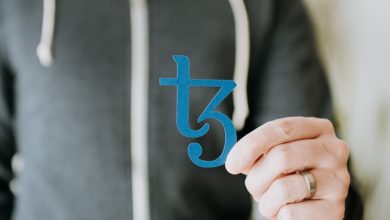The Rise of Privacy Coins: Monero, Zcash, and Beyond

- The Evolution of Privacy Coins in the Cryptocurrency Market
- Exploring the Unique Features of Monero and Zcash
- The Growing Popularity of Privacy-Enhancing Technologies
- Challenges and Opportunities for Privacy Coins in the Digital Economy
- Comparing Monero, Zcash, and other Privacy Coins
- Regulatory Concerns Surrounding the Use of Privacy Coins
The Evolution of Privacy Coins in the Cryptocurrency Market
Over the years, privacy coins have seen significant evolution in the cryptocurrency market. These digital assets have been developed to provide users with enhanced privacy and security features. Some of the most well-known privacy coins include Monero, Zcash, and others that have gained popularity among users looking to keep their financial transactions confidential.
One of the key features that set privacy coins apart from other cryptocurrencies is their focus on anonymity. By utilizing various cryptographic techniques such as ring signatures and zero-knowledge proofs, these coins are able to obfuscate transaction details, making it difficult to trace the flow of funds. This added layer of privacy has attracted users seeking to protect their financial information from prying eyes.
Monero, for example, is known for its use of ring signatures to mix transactions, making it nearly impossible to determine the sender and receiver. Zcash, on the other hand, offers users the option to shield their transactions using zk-SNARKs, a form of zero-knowledge proof. These advanced privacy features have made these coins popular choices for individuals and organizations looking to conduct confidential transactions.
As the demand for privacy coins continues to grow, developers are constantly working on improving the technology behind these digital assets. New privacy coins are being introduced to the market, each with its own unique features and enhancements. This competition has led to increased innovation in the field of privacy-focused cryptocurrencies, benefitting users who value their financial privacy.
In conclusion, the evolution of privacy coins in the cryptocurrency market has paved the way for greater privacy and security in financial transactions. With advanced cryptographic techniques and a focus on anonymity, coins like Monero and Zcash have gained widespread adoption among users looking to protect their sensitive information. As the market continues to evolve, we can expect to see even more developments in the field of privacy coins, offering users more options for conducting confidential transactions securely.
Exploring the Unique Features of Monero and Zcash
When exploring the unique features of Monero and Zcash, it becomes clear that these privacy coins offer distinct advantages over traditional cryptocurrencies. One of the key differences between Monero and Zcash is their approach to privacy. Monero uses a technology called Ring Signatures to obfuscate transactions, making it virtually impossible to trace them back to the sender. On the other hand, Zcash utilizes zk-SNARKs, a form of zero-knowledge cryptography, to provide users with the option of shielding their transaction details while still allowing for auditability.
The Growing Popularity of Privacy-Enhancing Technologies
In recent years, there has been a noticeable surge in the adoption and use of privacy-enhancing technologies. These tools and platforms are designed to protect users’ sensitive information and data from prying eyes and malicious actors. As concerns about online privacy continue to grow, more individuals and organizations are turning to solutions like Monero and Zcash to safeguard their digital transactions and communications.
One key factor driving the popularity of privacy coins is the increasing awareness of the importance of data privacy. With high-profile data breaches and privacy scandals making headlines on a regular basis, people are more conscious than ever of the risks associated with sharing personal information online. As a result, there is a growing demand for technologies that can provide secure and anonymous ways to conduct financial transactions and communicate online.
Privacy coins like Monero and Zcash offer users a level of anonymity and privacy that is not available with traditional cryptocurrencies like Bitcoin. By using advanced cryptographic techniques such as stealth addresses and ring signatures, these coins can obfuscate transaction details and shield users’ identities from being exposed on the blockchain. This added layer of privacy has made privacy coins increasingly attractive to individuals and businesses looking to protect their financial information from prying eyes.
In addition to individual users, privacy coins are also gaining traction among organizations and institutions that prioritize data security and confidentiality. From financial institutions to government agencies, there is a growing interest in leveraging privacy-enhancing technologies to protect sensitive information and ensure compliance with data protection regulations. As a result, privacy coins are being integrated into a wide range of applications and services, further driving their adoption and mainstream acceptance.
Overall, the growing popularity of privacy-enhancing technologies like Monero and Zcash reflects a broader shift towards a more privacy-centric digital world. As concerns about data privacy and security continue to escalate, individuals and organizations alike are seeking out innovative solutions to protect their sensitive information and communicate securely online. By leveraging privacy coins and other privacy-enhancing technologies, users can take control of their digital footprint and safeguard their privacy in an increasingly interconnected and data-driven world.
Challenges and Opportunities for Privacy Coins in the Digital Economy
In the digital economy, privacy coins like Monero and Zcash present both challenges and opportunities. These coins offer users a level of anonymity and privacy that is not available with traditional cryptocurrencies. This privacy feature has made privacy coins popular among individuals who value their financial privacy and want to keep their transactions confidential.
One of the challenges that privacy coins face is the perception that they are primarily used for illegal activities. This stigma has led to regulatory scrutiny and challenges for privacy coin projects. However, privacy coins also present opportunities for individuals and businesses looking to protect their financial information from prying eyes. By using privacy coins, users can ensure that their transactions are secure and confidential.
Privacy coins also offer the opportunity for individuals to take control of their financial information and protect their privacy in an increasingly digital world. With growing concerns about data breaches and surveillance, privacy coins provide a way for individuals to transact online without compromising their personal information. This level of privacy is particularly important for individuals in countries with strict financial regulations or those who want to protect their financial information from third parties.
Overall, privacy coins have the potential to revolutionize the way we think about privacy and financial transactions in the digital economy. While they face challenges in terms of regulatory scrutiny and public perception, privacy coins also offer unique opportunities for individuals and businesses to protect their financial information and maintain their privacy online. As the digital economy continues to evolve, privacy coins are likely to play an increasingly important role in ensuring the privacy and security of online transactions.
Comparing Monero, Zcash, and other Privacy Coins
When comparing Monero, Zcash, and other privacy coins, it is important to consider the different approaches they take to achieve anonymity for users. Monero utilizes ring signatures and stealth addresses to obfuscate transaction details, making it difficult to trace funds. Zcash, on the other hand, uses zero-knowledge proofs to provide selective transparency, allowing users to choose whether to disclose transaction information.
In addition to Monero and Zcash, there are other privacy coins in the market such as Dash, Verge, and PIVX. Dash offers optional privacy features through its PrivateSend functionality, while Verge focuses on providing secure and anonymous transactions through the use of Tor and I2P networks. PIVX, on the other hand, implements a proof-of-stake consensus mechanism combined with zerocoin protocol for privacy.
Each privacy coin has its own strengths and weaknesses, and the choice of which one to use ultimately depends on the user’s preferences and needs. Some users may prioritize privacy features, while others may prioritize transaction speed or fees. It is important to research and understand the different privacy coins available in order to make an informed decision on which one best suits your requirements.
Regulatory Concerns Surrounding the Use of Privacy Coins
Privacy coins such as Monero and Zcash have gained popularity in recent years due to their enhanced anonymity features. However, their use has raised regulatory concerns among governments and financial institutions around the world. The main issue revolves around the potential for privacy coins to facilitate illegal activities such as money laundering, tax evasion, and terrorist financing.
Regulators worry that the untraceable nature of privacy coins could make it difficult to monitor and regulate transactions, leading to a lack of transparency in the financial system. This lack of transparency could also pose risks to national security and the integrity of the global financial system. As a result, some countries have taken steps to restrict or ban the use of privacy coins within their borders.
In response to these regulatory concerns, developers of privacy coins have worked to strike a balance between privacy and compliance with existing regulations. For example, Monero has implemented features such as Kovri and RingCT to enhance privacy while also ensuring that transactions are still traceable to some extent. Zcash, on the other hand, offers users the option to make either transparent or shielded transactions, allowing for greater flexibility in terms of privacy.
Despite these efforts, the regulatory landscape surrounding privacy coins remains uncertain. It is clear that governments and financial regulators will continue to closely monitor the use of privacy coins and may introduce new regulations in the future to address potential risks. As such, users of privacy coins should stay informed about regulatory developments in order to ensure compliance with the law.



